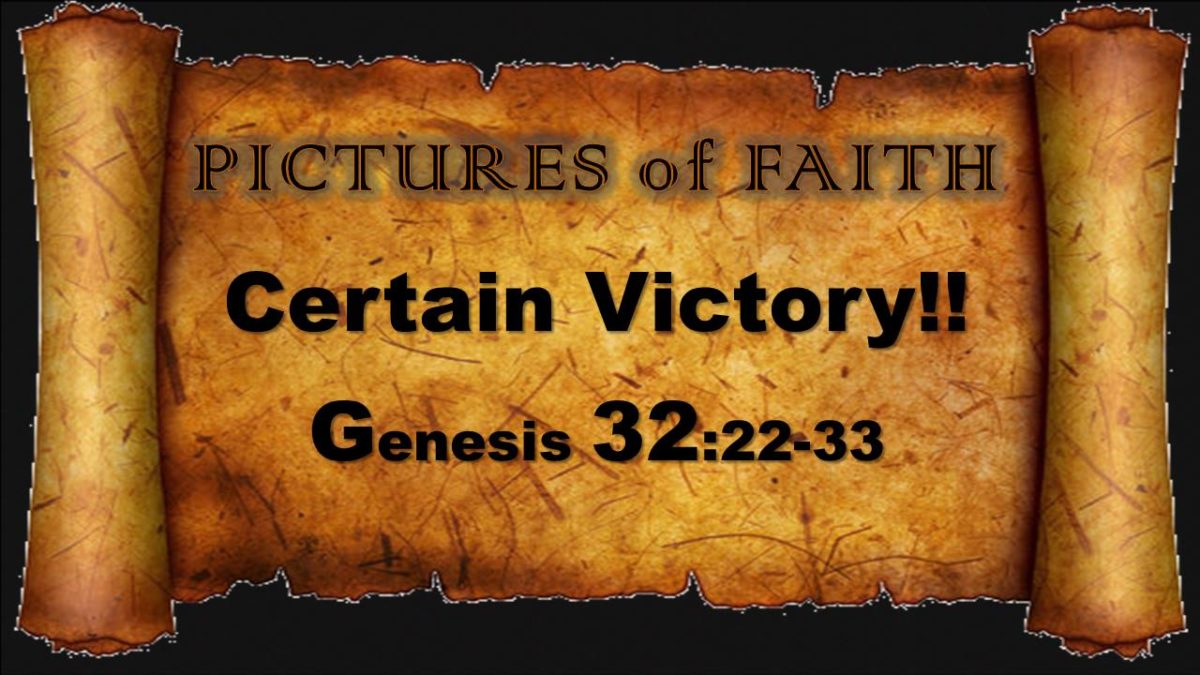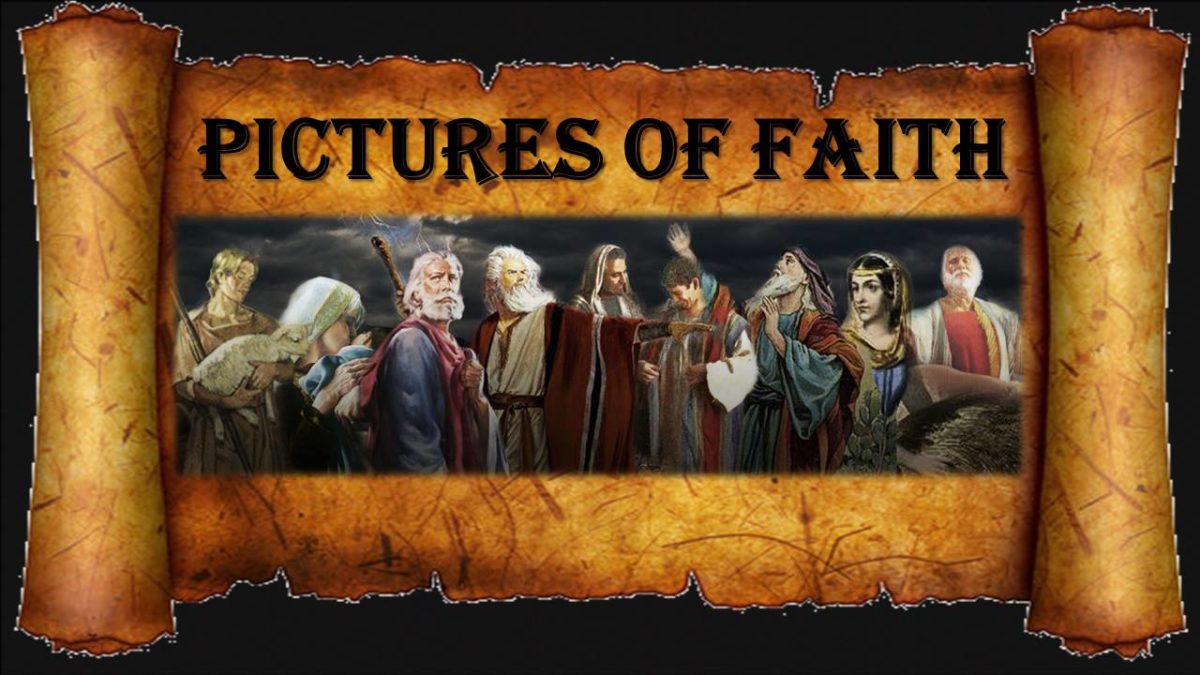Have you ever wondered why God is so quiet in the midst of your life circumstances?
Reading through the Old Testament would seem to suggest we might expect God to be “louder”. In Genesis 15, God confirmed Abraham’s faith by localizing His glory into a shape and passing through pieces of severed animals, covenantally putting Himself on the hook for sinners. In Genesis 32, Jacob wrestles with “a man” we later recognize to be the pre-incarnate Christ in the form of man, though not yet in the flesh of man. But then we come to Genesis 37, the section leading to the culmination of Genesis, and in the life of Joseph we resonate with the way God deals with His covenant people Israel. He’s quiet, working through the circumstances of Joseph’s life. And, in observing God’s plan of redemption for Joseph and his family in the midst of circumstances, we learn something about the ways of God in our own lives as well.
God’s plan of redemption for Joesph and his family was carried out through family brokenness (:1-11). In reading the account we know something Joseph and his family didn’t yet know: There’s about to be a severe famine, and everybody who isn’t provided for is going to die! How will God care for His covenant people? He’ll work through one very dysfunctional family.
The account begins (verse 3) with Joseph—the favorite son of his father— pasturing his father’s flocks with his half-brothers. Tension develops when Joseph brings a bad report to his father involving his brothers’ misconduct. The text says, literally, that after that, “They added still to hate him … and couldn’t speak peacefully to him” (:4). Joseph might have contributed brokenness as well, since the word “bad report” is related to the word “to whisper”. Perhaps, he’s a snitch, a tattle-tail.
But God is in all this. Joseph has two dreams. He dreams (verse 5) that he and his brothers were bundling sheaves in the fields and his brothers’ sheaves bowed down to his. Then (verse 9), he dreams that the sun and moon and stars bowed down to him. The symbolic meaning isn’t lost on his family: “Are you indeed to reign over us?” his brothers ask. “Shall I and your mother and your brothers indeed come to bow ourselves to the ground before you?” his father asks. Joseph doesn’t seem too guarded in sharing his dream. Perhaps there’s a layer of pride God is addressing in the circumstances to come.
Sin often runs in families, doesn’t it? And the setting of God’s redemption of the covenant family serves to remind us that God works especially in flawed family situations like yours, and like mine.
God’s plan of redemption for Joseph and his family was carried out through plans of sinners (:12-28). The story develops when Jacob, the father, sends his favorite son out to look for his other sons. Joseph doesn’t find them where they’re supposed to be but twelve miles to the north. And as they see their brother approaching wearing his multi-colored coat (the symbol of his father’s affection) they say, “Come now, let us kill him and throw him into one of these pits” (:20). One brother intervenes, so Joseph ends up alive in the pit, but as he’s shouting from the bottom of the pit he has to be thinking about the experience of his great-grandfather and father, noting that he’s among the only righteous ones in the covenant family and asking, “Where is God?! Why doesn’t God make Himself big and loud in my circumstances?”
God’s plan of redemption for Joseph and his family was carried out through unresolved grief (:29-36). Joseph is sold to some traders, and his brothers prepare the rouse by slaughtering a goat and dipping Joseph’s precious robe in the blood. “This we have found; please identify whether it is your son’s robe or not,” they request of their father. Jacob weeps inconsolably, and though he’ll find consolation at the end of the story he’ll go for years believing his son is dead.
All this serves to remind us how senseless our grief might seem in the moment. Like Jacob, we might go years not seeing what God is doing. Maybe, God’s work will remain quiet and hidden to us for the remainder of our lives. But, He is working …
Verse 36 is a transition to the rest of the story. Joseph is sold to Potiphar, an officer of Pharaoh. And, in the next chapters, we’ll see Joseph bring glory to God: “It is not to me [to interpret dreams]; God will give Pharaoh an answer” (chapter 41). God will reveal to Pharaoh through Joseph that there will be a great famine; Joseph will be raised to a position of greater authority in Egypt; and Joseph’s brothers will come to him, bow down and be saved.
So, here’s the story, big picture: If Joseph doesn’t get down to Egypt to become prime minister, everybody’s dead … If Joseph doesn’t get thrown into the pit, everybody’s dead … If Joseph doesn’t obey his father to go looking for his brothers, everybody’s dead. Joseph’s account ends in chapter 50 with one of the great summary statements of the Bible: As for you, you meant evil against me, but God meant it for good, to bring it about that many people should be kept alive, as we are today (50.20). God not only ordained the end in Joseph’s life, He ordained the means as well.
Joseph’s story also points us to somebody else. There was once another son who (really!) lived an impeccable life, and He was the favorite of His Father. And one day He was obedient to go looking for His brothers, and He found them in the wrong place. And they hated Him, and they stripped Him of His garments, and they killed Him, and He went down to the pit of death. But God raised Him and He went on ahead of us as the first-born from among the dead. And, if Jesus doesn’t die and go down to the pit of death for us, everybody’s dead!
God never turned up like a bolt of lightening in Joseph’s life, but He’s there working through (not in spite of) the details of Joseph’s life, just as He did in the life of our Lord.
Israel needed this message. They needed to remember as they crossed into the Land of Promise that the whole reason they had been removed to Egypt involved God’s plan for their redemption. Likewise, we need to remember that God’s sovereign plan for us will be accomplished in Christ through the circumstances of our lives.
What circumstances has God allowed into your life? Talk to God about this, why don’t you? Ask Him to open your eyes to make you sensitive to what He’s doing in your life and family through your circumstances. Maybe you won’t understand everything right away. Joseph didn’t. But, if you’re in Christ He will accomplish His purpose for your life, and He’ll use those circumstances that you might prefer to have removed to do so.
And, like Joseph, you and I might learn to say: God’s sovereign plan for me will be accomplished in Christ through the circumstances of my life.


